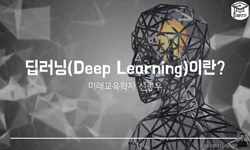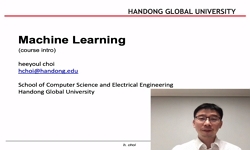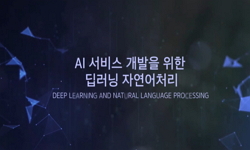Pronouns are frequently dropped in Korean sentences, especially in text messages in the mobile phone environment. Restoring dropped pronouns can be a beneficial preprocessing task for machine translation, information extraction, spoken dialog systems,...
http://chineseinput.net/에서 pinyin(병음)방식으로 중국어를 변환할 수 있습니다.
변환된 중국어를 복사하여 사용하시면 됩니다.
- 中文 을 입력하시려면 zhongwen을 입력하시고 space를누르시면됩니다.
- 北京 을 입력하시려면 beijing을 입력하시고 space를 누르시면 됩니다.
https://www.riss.kr/link?id=A105258933
- 저자
- 발행기관
- 학술지명
- 권호사항
-
발행연도
2018
-
작성언어
English
- 주제어
-
등재정보
KCI등재,SCI,SCIE,SCOPUS
-
자료형태
학술저널
- 발행기관 URL
-
수록면
257-265(9쪽)
-
KCI 피인용횟수
0
- DOI식별코드
- 제공처
- 소장기관
-
0
상세조회 -
0
다운로드
부가정보
다국어 초록 (Multilingual Abstract)
Pronouns are frequently dropped in Korean sentences, especially in text messages in the mobile phone environment. Restoring dropped pronouns can be a beneficial preprocessing task for machine translation, information extraction, spoken dialog systems, and many other applications. In this work, we address the problem of dropped pronoun recovery by resolving two simultaneous subtasks: detecting zero‐pronoun sentences and determining the type of dropped pronouns. The problems are statistically modeled by encoding the sentence and classifying types of dropped pronouns using a recurrent neural network (RNN) architecture. Various RNN‐based encoding architectures were investigated, and the stacked RNN was shown to be the best model for Korean zero‐pronoun recovery. The proposed method does not require any manual features to be implemented; nevertheless, it shows good performance.
참고문헌 (Reference)
1 P. Jing, "Zero-Anaphora Resolution in Chinese Using Maximum Entropy" 90 (90): 1092-1102, 2007
2 W. Yang, "Zero Pronoun Resolution in Chinese Using Machine Learning Plus Shallow Parsing" 905-910, 2008
3 A. Park, "Zero Object Resolution in Korean" 439-448, 2015
4 M. Hermans, "Training and Analyzing Deep Recurrent Neural Networks" 190-198, 2013
5 황민국, "Structural SVM을 이용한 백과사전 문서 내 생략 문장성분 복원" 한국지능정보시스템학회 21 (21): 131-150, 2015
6 S.J. Lee, "Restoring an Elided Title for Encyclopedia QA System" 32 (32): 541-543, 2005
7 Y. Yang, "Recovering Dropped Pronouns from Chinese Text Messages" 309-313, 2015
8 S.P. Converse, "Pronominal Anaphora Resolution in Chinese" Univ. Pennsylvania 2006
9 H. Sak, "Long Short-Term Memory Recurrent Neural Network Architectures for Large Scale Acoustic Modeling" 338-342, 2014
10 S. Hochreiter, "Long Short-Term Memory" 9 (9): 1735-1780, 1997
1 P. Jing, "Zero-Anaphora Resolution in Chinese Using Maximum Entropy" 90 (90): 1092-1102, 2007
2 W. Yang, "Zero Pronoun Resolution in Chinese Using Machine Learning Plus Shallow Parsing" 905-910, 2008
3 A. Park, "Zero Object Resolution in Korean" 439-448, 2015
4 M. Hermans, "Training and Analyzing Deep Recurrent Neural Networks" 190-198, 2013
5 황민국, "Structural SVM을 이용한 백과사전 문서 내 생략 문장성분 복원" 한국지능정보시스템학회 21 (21): 131-150, 2015
6 S.J. Lee, "Restoring an Elided Title for Encyclopedia QA System" 32 (32): 541-543, 2005
7 Y. Yang, "Recovering Dropped Pronouns from Chinese Text Messages" 309-313, 2015
8 S.P. Converse, "Pronominal Anaphora Resolution in Chinese" Univ. Pennsylvania 2006
9 H. Sak, "Long Short-Term Memory Recurrent Neural Network Architectures for Large Scale Acoustic Modeling" 338-342, 2014
10 S. Hochreiter, "Long Short-Term Memory" 9 (9): 1735-1780, 1997
11 K. Cho, "Learning Phrase Representations Using RNN Encoder-Decoder for Statistical Machine Translation"
12 Y. Bengio, "Learning Deep Architectures for AI, Found. Trends(R)" 2 (2): 1-127, 2009
13 S. Cai, "Language- Independent Parsing with Empty Elements" 212-216, 2011
14 N.-R. Han, "Korean Zero Pronouns: Analysis and Resolution" Univ. Pennsylvania 2006
15 S. Zhao, "Identification and Resolution of Chinese Zero Pronouns: A Machine Learning Approach" 541-550, 2007
16 J. Chung, "Empirical Evaluation of Gated Recurrent Neural Networks on Sequence Modeling" 2014
17 T. Mikolov, "Efficient Estimation of Word Representations in Vector Space"
18 T. Chung, "Effects of Empty Categories on Machine Translation" 636-645, 2010
19 C. Giannella, "Dropped Pronoun Recovery in Chinese SMS, Technical Paper" 2015
20 L. Wang, "Dropped Pronoun Generation for Dialogue Machine Translation" 6110-6114, 2016
21 C. Chen, "Chinese Zero Pronoun Resolution with Deep Neural Networks" 778-788, 2016
22 Y. Yang, "Chasing the Ghost: Recovering Empty Categories in the Chinese Treebank" 1382-1390, 2010
23 F. Kong, "A Tree Kernel-Based Unified Framework for Chinese Zero Anaphora Resolution" 882-891, 2010
동일학술지(권/호) 다른 논문
-
Hybrid SNR‐Adaptive Multiuser Detectors for SDMA‐OFDM Systems
- 한국전자통신연구원
- Uğur Yeşilyurt
- 2018
- KCI등재,SCI,SCIE,SCOPUS
-
- 한국전자통신연구원
- Guang Yang
- 2018
- KCI등재,SCI,SCIE,SCOPUS
-
Broadband Spectrum Sensing of Distributed Modulated Wideband Converter Based on Markov Random Field
- 한국전자통신연구원
- Zhi Li
- 2018
- KCI등재,SCI,SCIE,SCOPUS
-
470‐MHz–698‐MHz IEEE 802.15.4m Compliant RF CMOS Transceiver
- 한국전자통신연구원
- 서영호
- 2018
- KCI등재,SCI,SCIE,SCOPUS
분석정보
인용정보 인용지수 설명보기
학술지 이력
| 연월일 | 이력구분 | 이력상세 | 등재구분 |
|---|---|---|---|
| 2023 | 평가예정 | 해외DB학술지평가 신청대상 (해외등재 학술지 평가) | |
| 2020-01-01 | 평가 | 등재학술지 유지 (해외등재 학술지 평가) |  |
| 2005-09-27 | 학술지등록 | 한글명 : ETRI Journal외국어명 : ETRI Journal |  |
| 2003-01-01 | 평가 | SCI 등재 (신규평가) |  |
학술지 인용정보
| 기준연도 | WOS-KCI 통합IF(2년) | KCIF(2년) | KCIF(3년) |
|---|---|---|---|
| 2016 | 0.78 | 0.28 | 0.57 |
| KCIF(4년) | KCIF(5년) | 중심성지수(3년) | 즉시성지수 |
| 0.47 | 0.42 | 0.4 | 0.06 |








 ScienceON
ScienceON







